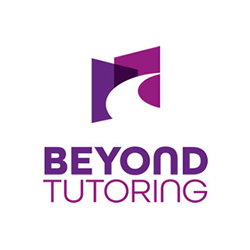
A Level English Literature Tutoring
ENGLISH LITERATURE AQA
AS Level: Paper 1- Love through the ages
Section C: Comparing Texts- Chosen comparative set texts: post 1900 prose
Scott Fitzgerald: The Great Gatsby
This 12 week course will consist of weekly, hour long sessions.
We will initially contextualise the text in the aftermath of World War 1 and the period of relative plenty before the Wall Street crash. We will examine some of the key themes, concepts and ideas explored through the text, with particular emphasis on how love is explored. We will explore the importance of characterisation in the novel, with reference to how the characters represent some of the key themes. Considered a modernist text, we will explore some of the key modernist shifts in writing and how they are imbued through the text. In this critical engagement with the text, we will explore some of the key literary techniques Fitzgerald uses, like symbolism, settings and imagery. In preparation for the final session, students will write an extended response to the representation of love through the themes, ideas and techniques used in the text. In the final session, students will share their essays, receiving live, insightful and immediate constructive feedback-a proven way to impact positively on attainment.
Section C: Comparing Texts- Chosen comparative set texts: post 1900 prose
Ian McEwan: Atonement
This 12 week course will consist of weekly, hour long sessions.
We will initially contextualise the novel through the social, historical and literary context of the period in which the novel is based. We will examine the key characters of the text, as they link inextricably with the main themes and ideas presented in the novel. McEwan uses a number of important stylistic conventions in the text, so we will extensively review the structure of the text and the narrative presentation. In our critical engagement with the text, we will be exploring some of the extracts in depth, pertaining to how love is represented through the novel. We will explore how critical interpretations and literary theory mould our deeper understanding of the text. In preparation for the final session, students will write an extended response with regards the presentation of love in the novel. In the final session, students will share their essays, receiving live, insightful and immediate constructive feedback-a proven way to impact positively on attainment.
A Level English Literature A
Paper 2A- Texts in shared contexts: WW1 and its aftermath
Option 3: Prose core set text
Pat Barker- Regeneration
This 12 week course will consist of weekly hour long sessions.
We will begin the course by contextualising the novel through the socio-political background of the first world war. We will then examine the key themes, concepts and ideas explored through the text, with particular emphasis on the rise of the newly labelled ‘shell shock’ and resultant attitudes and treatments. Characterisation in the novel is significant as the characters reflect different prevailing attitudes to both the war and its resulting trauma. We will then look at some critical engagement with the text, analysing some of the prominent literary techniques and some of the key philosophical issues arising from the text. In reviewing our learning, we will explore some of the past paper exam questions on the text, corroborating and discussing possible responses. In preparation for the final session, the students will write an essay response on their chosen past paper question. The final session will be a chance for the students to share their essay, receiving live, insightful and immediate constructive feedback-a proven way to impact positively on attainment.
Paper 2B Texts in shared contexts; Modern times: Literature from 1945 to the present day.
Option 3: Prose Core set text
Graham Swift- Waterland
This course will consist of 12 weekly hour long sessions.
We will initially review some key postmodernist shifts in writing to help contextualise the novel and assist understanding of some of the more experimental elements found in the presentation of the novel. We will examine some of the key themes and ideas explored in the text. In so doing, we will pay close attention to the detail of the narrative structure and stylistic innovation. In reviewing characterisation in the novel, we will help illuminate the core tension between the notion of history and our perception of the ‘here and now’. There will be extensive critical engagement with the text, to deepen our understanding of the idea of man as the ‘story telling animal’. In reviewing our learning, we will look at the past paper questions on this set text and discuss possible ways to respond to them. In preparation for the final session, students will write a past paper essay response of their own choosing. The final session will be a chance for the students to share their essay, receiving live, insightful and immediate constructive feedback-a proven way to impact positively on attainment.
Paper 2B Texts in shared contexts; Modern times: Literature from 1945 to the present day.
Option 3: Prose Core set text
Margaret Atwood- The Handmaid’s Tale
This course will consist of 12 weekly hour long sessions.
We will initially contextualise the novel through discussion of dystopian literature, speculative fiction and key movements in postmodernist fiction. In addition, it is critical we explore the political and environmental concerns that underpin the narrative. We will then explore the key themes and concepts raised through the novel, focusing especially on how women are presented through both the handmaid and wider characterisation. We will examine some of Atwood’s key literary techniques, with special reference to form, structure and language. In our critical engagement with the text, we will try to position it in prevailing modes of literary theory, like psychoanalytical criticism for instance. In our review of our learning, we will examine some of the past paper questions on the text. In so doing, we will discuss possible ways of responding, drawing together all aspects of the course. In preparation for the final session, students will choose a question from a past paper, and prepare an essay response. The final session will be a chance for the students to share their essay, receiving live, insightful and immediate constructive feedback-a proven way to impact positively on attainment.
Paper 2B Texts in shared contexts; Modern times: Literature from 1945 to the present day.
Option 3: Prose Chosen comparative set text.
Ken Kesey: One Flew over the Cuckoo’s Nest
This course will consist of 12 weekly hour long sessions.
We will initially contextualise the text by a brief exploration of Kesey’s background and the counter cultural perspective underpinning his work. We will explore the major characters within the text, with particular focus on the palpable tension between Nurse Ratched and Randle McMurphy. Through this broken dynamic arises the core themes and concepts explored in the novel. We will examine the themes and emphasise how laughter becomes a key tool against systemic oppression. The narrative perspective of the text is striking, as we seek to explore methods of stylistic presentation and narrative perspective. In reviewing our learning, we will examine some suggested study questions and essay topics. In so doing, we will examine some key textual references and extracts, emphasising why they are so culturally significant. In preparation for the final session, students will prepare an extended response based on study questions, essay topics and past paper questions. The final session will be a chance for the students to share their essay, receiving live, insightful and immediate constructive feedback-a proven way to impact positively on attainment.
A Level Study skills session
This 6 week course will consist of weekly hour long sessions.
In these sessions, we will explore how best to approach essay questions at both AS and A Level. This will be a broad ‘study skills’ course, looking at:
- Ways in which to structure extended and essay-based responses, in order to display clear understanding of the question.
- How to develop a clear and cogent line of argument.
- How best to use textual references, embedding them within the flow of essay responses.
- How best to engage with critical and literary theory, to display wider knowledge of literary developments.
- How to use relevant critical engagement with the text that relates specifically to the essay question.
All Services
Book Online Now
Contact us
If you have and questions or would like further information, please use the form to send me a message, or email me directly:

